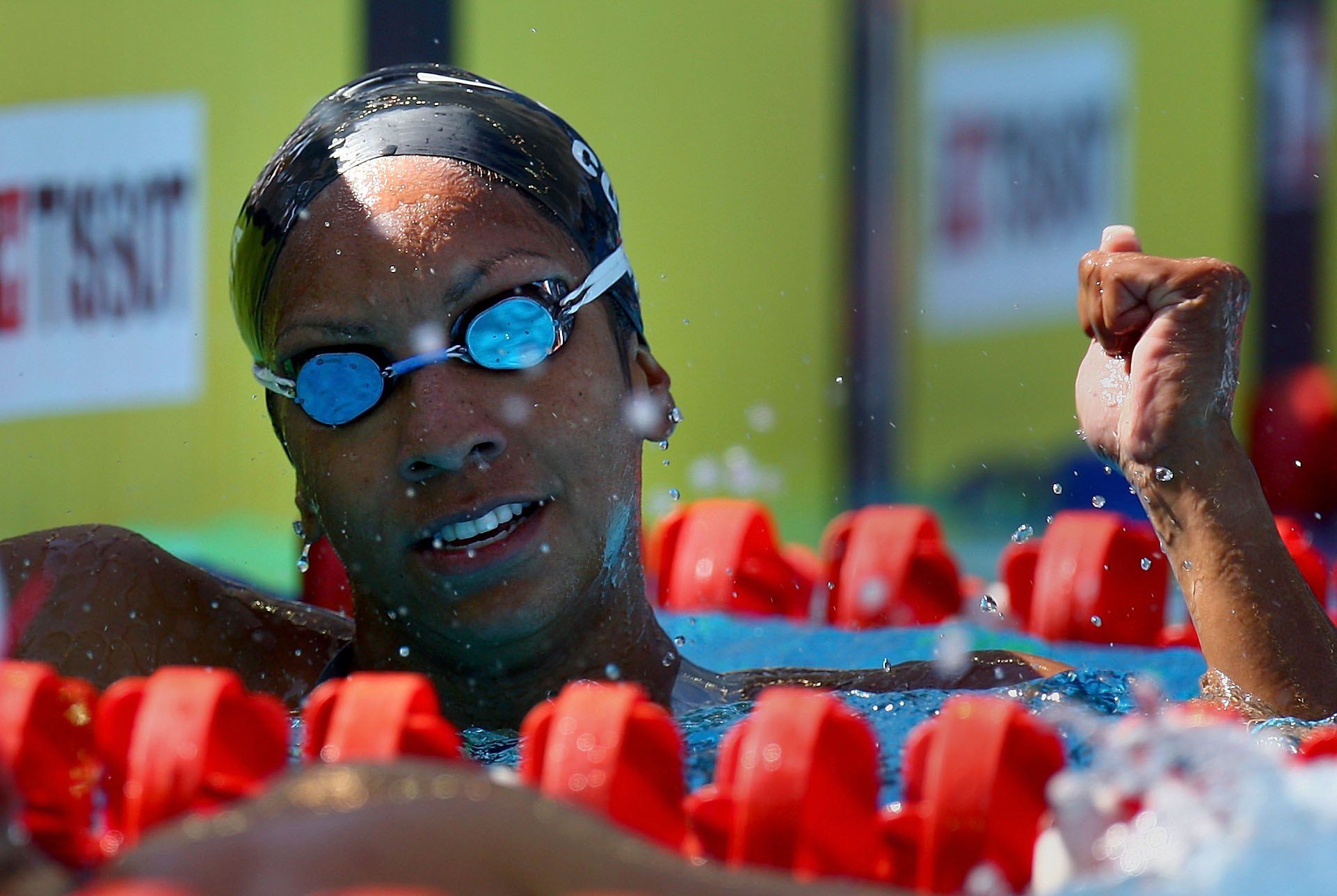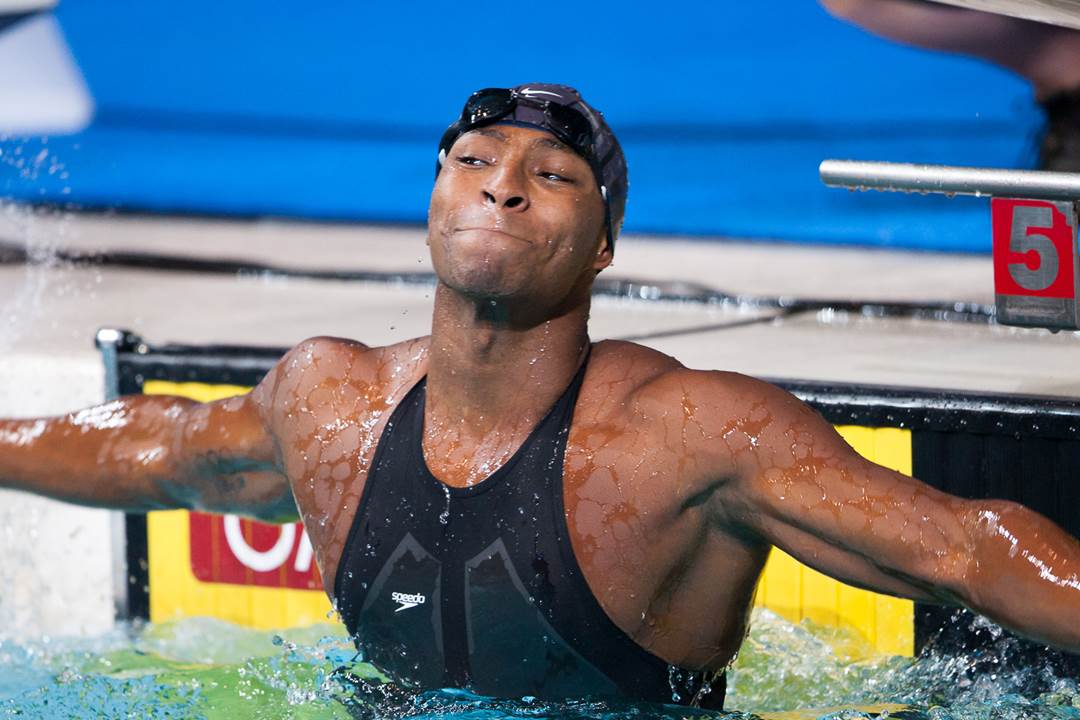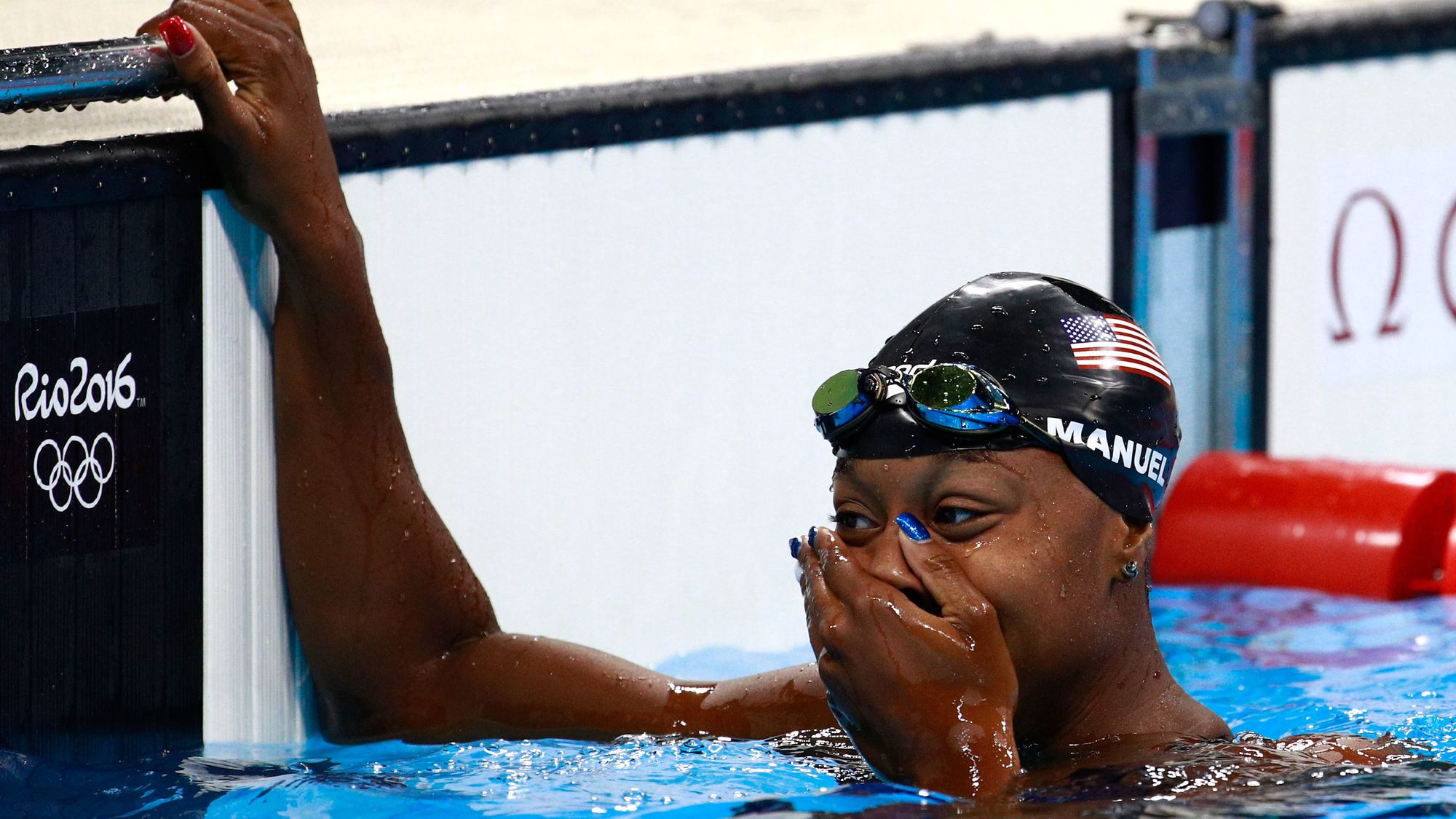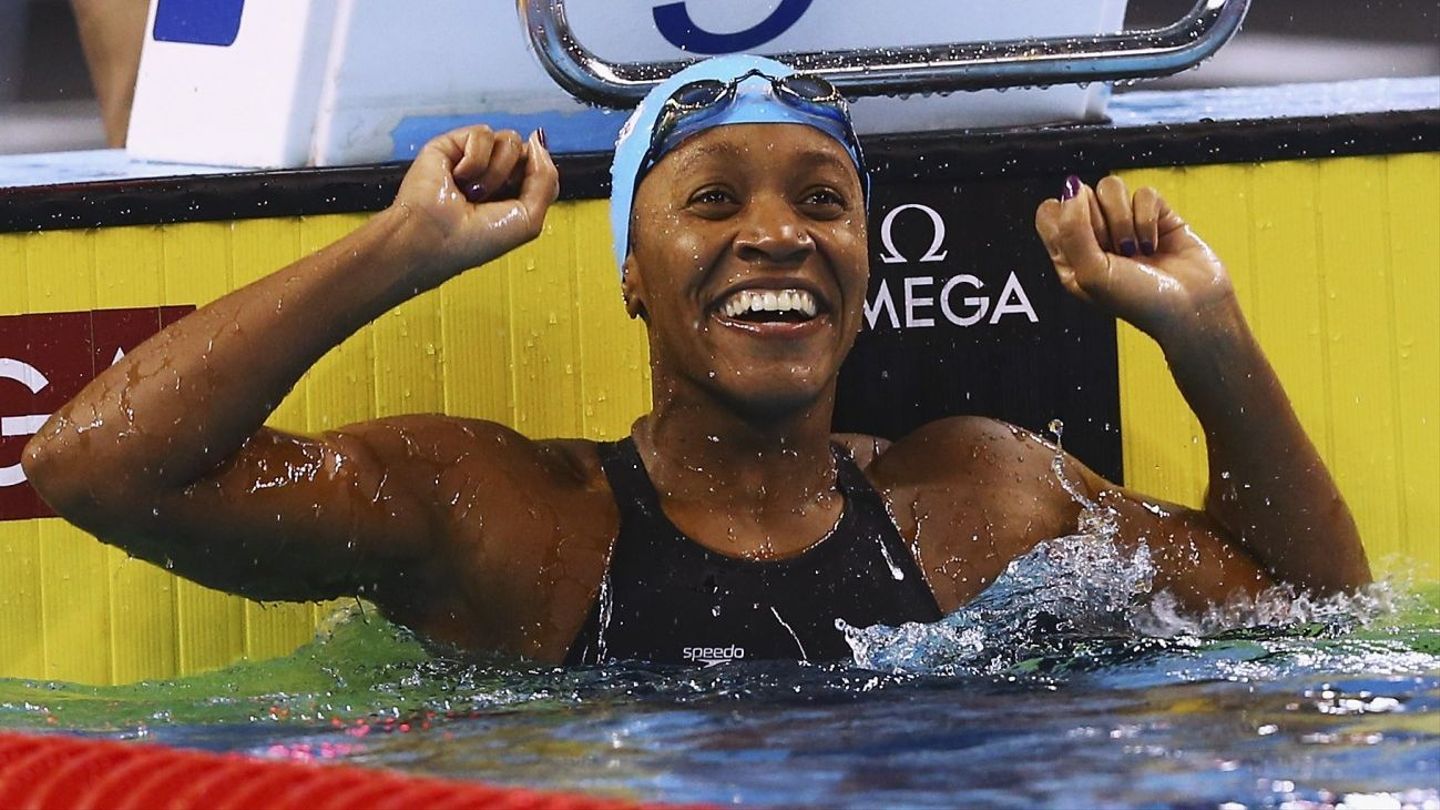Black History Month Highlights 2021
February is Black History Month and this year we celebrated by doing a weekly highlight of a black swimmer that helped pave the way for the growing diversity that we see in the sport of swimming today!
See our inspirational 2021 Black History Month highlights below and learn more about how they've paved the way for other black swimmers to take the spotlight in the world of swimming!
Maritza Correia: "I want to inspire other minorities to get involved with swimming and love it as much as I do…I’m proud to be the first, but I don’t want to be the last.”

Maritza Correia was the first black American to set an American and world swimming record, and the first female black Olympic swimmer to join the U.S. team.
Martiza started off her swimming career in choppy waters. Her doctor diagnosed her with scoliosis and recommended swimming as part of her treatment and therapy program. From there, she became obsessed with swimming.
By the time she was 18, she became the 50-meter freestyle U.S. national champion in the 18-and-under category. She went on to take one gold in the 2002 National Championships, and gold in the 2003 World Championships, as well as one gold and two bronze medals at the 2011 World Championships. In 2004, she made the Olympic team and won silver as part of the 4×100-meter freestyle relay in Athens, Greece.
As the first black female swimmer on the Olympic team, she paved the way for other great black swimmers like Cullen Jones—more on him in a moment—as well as Simone Manuel and Lia Neal to be on the Olympic team and achieve greatness. She said that she “want[ed] to inspire other minorities to get involved with swimming and love it as much as I do…I’m proud to be the first, but I don’t want to be the last.” And she absolutely wasn’t. With each year, the Olympic team becomes more and more diverse thanks to pioneers like Maritza.
Cullen Jones: “You’ve gotten a whole culture to believe that swimming isn’t something that they do… We have changed that stereotype.”

Cullen Jones is the first black male swimmer to hold a world record in swimming. At the 2008 United States Olympic Trials, Cullen set the record for the 50-meter freestyle with a time of 21.59, and he didn’t stop there. He set the 50-meter freestyle American record in 2009 at the U.S. National Championships with a 21.40.
In 2012, Cullen made waves by winning three medals at the London Olympics. He won silver in the 50-meter freestyle and was a member of the silver medal-winning team of the 4 x 100-meter freestyle team, as well as the gold-winning 4 x 100-meter medley team.
But many don't know, Cullen wasn’t always a swimmer. When he was only five years old, he nearly drowned at a waterpark and was rescued by his father. From there, Cullen wanted to learn how to swim, and it became his passion.
Cullen regularly with USA Swimming Foundation’s Make a Splash program to help inspire youth to become better swimmers and challenge themselves, regardless of color. He says, “You’ve gotten a whole culture to believe that swimming isn’t something that they do… We have changed that stereotype.”
Simone Manuel: “The gold medal wasn’t just for me, it was for people who came before me and inspired me to stay in the sport and for people who believe that they can’t do it. I hope that I’m an inspiration to others to get out there and try swimming.”

For 16 years, through Olympics in Sydney, Athens, Beijing, London and Rio, African-Americans swam under a microscope for their country.
Questions about oddity and identity weighed them down as they tried to outrace history and the competition. Finally, on a Thursday night, Simone Manuel’s gold medal in the 100-meter freestyle turned a liberating page for black swimmers.
Trailing by an ominous half-second at the turn, Manuel used a furious closing charge to finish tied with Penny Oleksiak of Canada in an Olympic and American record of 52.70. Manuel is the first African-American woman to win an individual swimming medal at any Olympic Games.
After shedding tears on the medal stand while the national anthem played, Manuel thanked black predecessors like Cullen Jones and Maritza Correia in acknowledging the historic nature of her victory.
“The gold medal wasn’t just for me, it was for people who came before me and inspired me to stay in the sport,” said the 20-year-old Stanford University student from the Houston suburb of Sugar Land, Texas. “And for people who believe that they can’t do it. I hope that I’m an inspiration to others to get out there and try swimming.”
Alia Atkinson: "Hopefully, my face will come out, there will be more popularity, especially in Jamaica and the Caribbean, and we’ll see more of a rise in diversity throughout the sport of swimming."

In 2015 Jamaican swimmer Alia Atkinson became the 100m breaststroke champion and officially became the first ever black woman to win a world swimming title.
Atkinson completed the race in 1 minute and 2.36 seconds at the Fina World Swimming championships.
Atkinson, who mostly trains in Florida, works with the International Swimming Hall of Fame to promote swimming to youngsters from different communities throughout Florida.
According to a 2010 survey by USA Swimming, 69% of African American children have low or no swimming ability. The stereotype of black people refusing to learn how to swim is a stubborn one to shake, but with Atkinson’s win – and others such as Justin Lynch (an 18-year-old California swimmer who broke Michael Phelps’s 2001 national age-group record in 2013) – perhaps it is being eroded.
After her win, Atkinson told AFP: “Hopefully, my face will come out, there will be more popularity, especially in Jamaica and the Caribbean, and we’ll see more of a rise in diversity throughout the sport of swimming."
Here at Big Blue Swim School we show kids they can do anything by unlocking their full potential in the water and out. Teaching a child to swim is so much more than simply teaching them to swim. It’s building their confidence as they learn how to face challenges head-on. It’s teaching them to succeed. Our purpose is to deliver big, transformative moments in the pool that enable children to spend more time swimming and less time sitting on the ledge.
This is something every child should be able to experience. These are experiences that every child needs! We are committed to making swimming accessible to swimmers across all communities.
We are passionate about our mission to make swimming accessible to swimmers across all communities and we are grateful for swimmers that have paved the way like Maritza Correia, Cullen Jones, Simone Manuel & Alia Atkinson for further diversity in this incredible and formative sport of swimming.
Sources:
Washington, Jesse. "A New Chapter for Black Olympic Swimming." The Undefeated, 2016.
Adewunmi, Bim. "Alia Atkinson wins a new world record – and a first for a black woman." The Guardian, 2014